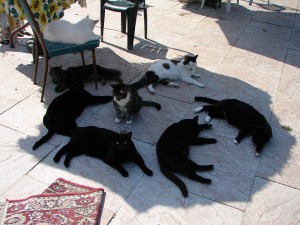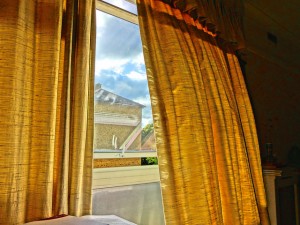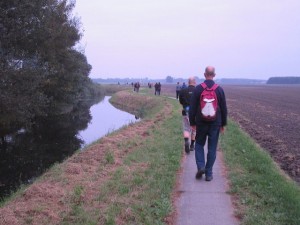unbearable ![]()
[Dutch phrase of the week]
[Niet te har-den]
 The verb “harden” translates as “to harden”, “to toughen up” or “to bear/stand”. In case of the latter, one often uses the phrase “niet te harden” to say that something is unbearable. This can basically be anything, see the examples.
The verb “harden” translates as “to harden”, “to toughen up” or “to bear/stand”. In case of the latter, one often uses the phrase “niet te harden” to say that something is unbearable. This can basically be anything, see the examples.
A common construction is “niet te harden zo [adjective]”, meaning that the situation was unbearable with respect to the adjective used.
(Photo: Tjflex2 (flickr.com) – some rights reserved.)
Examples:
– “Je kunt op zaterdag beter niet naar de Kalverstraat in Amsterdam gaan, het is er dan heel druk; niet te harden!”
(“One had better not go to the Kalverstraat in Amsterdam on a Saturday, it is very crowded; unbearable!”)
– “Het vuilnis is nu drie weken niet opgehaald, de stank is niet te harden!”
(“The garbage has not been collected for three weeks now, the stench is unbearable!”)
– “Bas is in Sint-Petersburg naar de sauna geweest, hij zei dat het er niet te harden was zo heet!”
(“Bas went to the sauna in Saint Petersburg, he said that the heat was unbearable!”)
– “Ik ben eerder weggegaan van het concert, het volume was niet te harden zo hoog!”
(“I left the concert early, the loudness of the volume was unbearable!”)
– “Het etentje met mijn schoonouders was rampzalig, de spanning was niet te harden!”
(“The dinner with my in-laws was desastrous, the tension was unbearable!”)
Expressions:
– “Niet te doen!”: impossible, tough, unpleasant.
Related words:
– Harden: 1. to harden 2. to toughen up 3. to bear/stand [verb] [hardde, gehard].
– Ondraaglijk: unbearable [adjective].
Example:
– “De ondraaglijke lichtheid van het bestaan.”
(“The unbearable lightness of being.”)
– Verdragen: to bear, stand [verb] [verdroeg, verdragen].

 “Tocht” is the suction of the wind in a room when you for example open windows on opposite sides. The verb is ‘tochten’. A common expression is ‘op de tocht komen te staan’, see below.
“Tocht” is the suction of the wind in a room when you for example open windows on opposite sides. The verb is ‘tochten’. A common expression is ‘op de tocht komen te staan’, see below. “Tocht” can also be used for ‘journey’ or ‘trip’. Duration of the ‘tocht’ should be clear from context, a ‘tochtje’ is a short trip like an outing. A ‘dagtocht(je)’ is an outing for the day.
“Tocht” can also be used for ‘journey’ or ‘trip’. Duration of the ‘tocht’ should be clear from context, a ‘tochtje’ is a short trip like an outing. A ‘dagtocht(je)’ is an outing for the day.